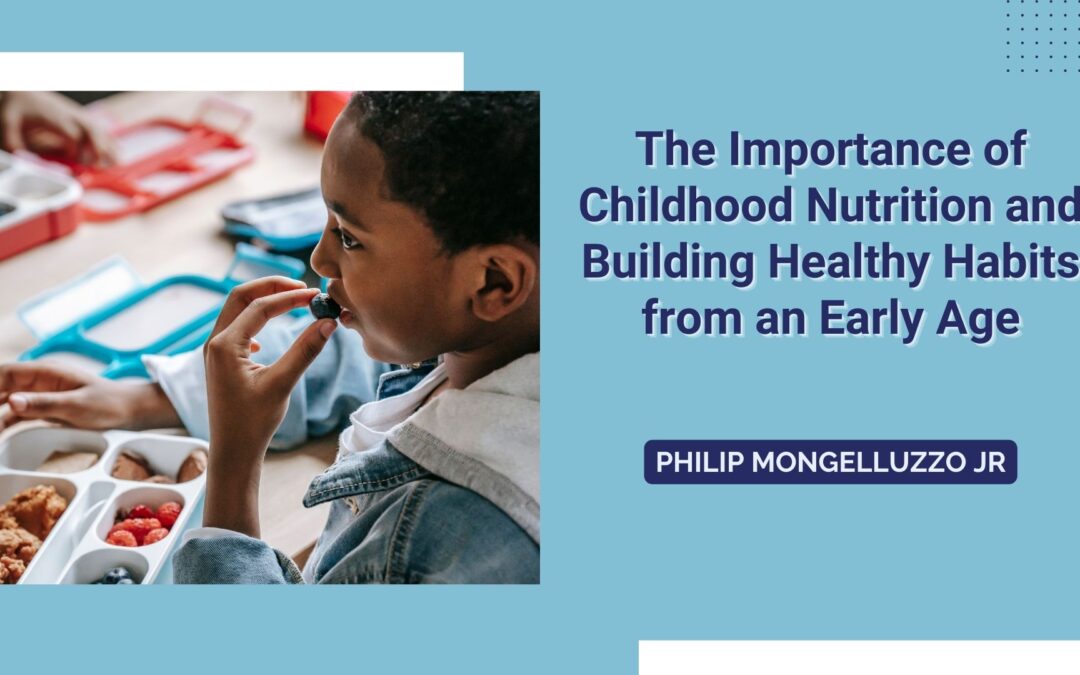Childhood is a critical period of growth and development. During these formative years, children build the foundation for their lifelong health and well-being. One of the cornerstones of a healthy childhood is proper nutrition.
Nutrition and Growth
Proper nutrition is essential for a child’s physical growth. During childhood, the body undergoes rapid development, and adequate nutrition provides the necessary building blocks for bones, muscles, and organs. Essential nutrients, including vitamins, minerals, and macronutrients like carbohydrates, proteins, and fats, are crucial for overall growth.
Cognitive Development
Nutrition doesn’t just fuel physical growth; it’s also vital for cognitive development. The brain is particularly active during childhood, with critical processes like brain cell formation, synapse development, and myelination taking place. Nutrients such as omega-3 fatty acids, iron, zinc, and vitamins are pivotal in supporting cognitive functions, memory, and learning abilities.
Immune System Support
A well-balanced diet rich in vitamins and minerals strengthens the immune system, helping children fight infections and illnesses. Adequate nutrition ensures the body has the resources to produce immune cells and antibodies that protect against diseases.
Energy and Activity Levels
Children are naturally active, and proper nutrition provides the energy necessary for physical activity. Balanced meals and snacks help children maintain optimal energy levels, allowing them to engage in physical play, sports, and other activities that promote physical fitness and coordination.
Healthy Weight Management
Childhood obesity is a growing concern worldwide. Poor nutrition and unhealthy eating habits can contribute to excess weight gain. Teaching children to make nutritious food choices early can help them maintain a healthy weight and reduce the risk of obesity-related health issues like type 2 diabetes and heart disease.
Prevention of Chronic Diseases
Nutrition in childhood can have a long-term impact on health. Healthy eating habits established in childhood often persist into adulthood. Parents and caregivers can reduce the risk of chronic diseases such as hypertension, heart disease, and certain cancers later in life by promoting a diet rich in fruits, vegetables, whole grains, and lean proteins.
Establishing Healthy Habits
Healthy eating habits during childhood set the stage for a lifetime of well-being. Here are some strategies for promoting healthy eating habits from an early age:
- Lead by Example: Children learn by observing their parents and caregivers. Be a role model by making nutritious food choices and demonstrating a positive attitude toward healthy eating.
- Offer a Variety of Foods: Introduce a wide range of foods to children’s diets, including fruits, vegetables, whole grains, lean proteins, and dairy or dairy alternatives. Variety ensures they receive a broad spectrum of nutrients.
- Limit Sugary and Processed Foods: Minimize the consumption of sugary snacks, sugary drinks, and highly processed foods high in salt and unhealthy fats. These items should be occasional treats rather than regular staples.
- Regular Family Meals: Eating together fosters a sense of connection and encourages healthy eating habits. Aim for regular family meals whenever possible.
- Teach Portion Control: Help children understand portion sizes and recognize when they are full. Avoid pressuring them to finish everything on their plate.
- Involve Children in Meal Preparation: Engage children in age-appropriate meal preparation activities. This can pique their interest in food, nutrition, and cooking.
- Encourage Hydration: Promote water as the primary beverage of choice. Limit sugary drinks like sodas and fruit juices.
- Educate About Nutrition: Explain the importance of various nutrients and their role in the body. Make learning about nutrition a fun and interactive experience.
The Role of Schools and Communities
Schools and communities also play a crucial role in childhood nutrition. Many schools have implemented programs that provide nutritious meals and promote healthy eating habits. Parents can support these efforts by collaborating with schools and advocating for healthier food options in cafeterias.
Community initiatives, such as farmers’ markets, community gardens, and nutrition education programs, can reinforce healthy eating habits and make nutritious foods more accessible to families.
Conclusion
Childhood nutrition and healthy eating habits are paramount for a child’s physical and mental well-being. Proper nutrition supports growth, cognitive development, immune function, and overall health. Parents, caregivers, schools, and communities can empower children to make informed food choices that will benefit them by instilling healthy eating habits from an early age. Investing in childhood nutrition is an investment in our children’s future health and vitality.

